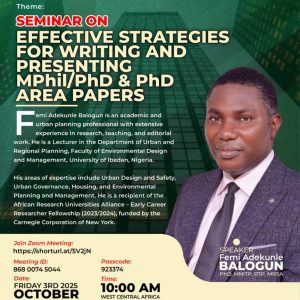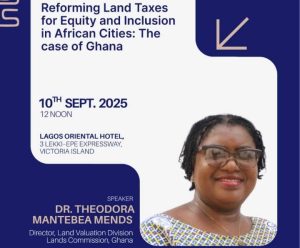ACRC Hosts Transformative Action Research and Safeguarding Workshop in Lagos
The African Cities Research Consortium (ACRC) successfully held a high-impact Action Research and Safeguarding Workshop from June 16 to 19, 2025, at the Radisson Hotel, Ikeja, Lagos. The four-day workshop brought together ACRC project team members, researchers, community actors, and facilitators to deepen understanding, co-create plans, and strengthen safeguarding strategies for ongoing action research projects in Lagos. The workshop was facilitated by Professor Shuaib Lwasa, an expert in Urban Resilience and Global Development, alongside Irene Vance and Clarisse Erana. Their combined leadership provided technical depth, strategic guidance, and real-world insights that enriched team discussions and planning.
Strengthening the Foundation of Action Research
At the heart of the workshop was a shared commitment to using action research (AR) as a tool for inclusive urban transformation. Participants engaged in rich discussions to define and unpack what action research (AR) truly means, distinguishing it as a participatory, bottom-up, co-creative, and iterative methodology. It was collectively agreed that AR is not a top-down or one-size-fits-all approach, but rather a dynamic process that brings together diverse stakeholders to collaboratively identify and solve locally relevant challenges.
Teams explored how AR could be embedded within their work on complex urban development problems, including water, sanitation and hygiene (WASH), and climate resilience. Through participatory exercises, they identified tools, methods, and strategies for integrating AR into ongoing and future projects, ensuring sustainability, community ownership, and practical impact.
Developing Action Plans for Local Impact
A key outcome of the workshop was the collaborative development of action research implementation plans aligned with each team’s specific urban challenge. Teams worked on identifying their boundary partners, ranging from government institutions to local NGOs, academia, private sector actors, and community stakeholders, and mapped their roles within the AR process.
The participants also crafted lean and flexible progress monitoring frameworks using outcome mapping principles. These included defining project-level progress markers with indicators categorised under “expect to see,” “like to see,” and “love to see” changes, which will guide the evaluation of AR efforts in the coming months.
Further, participants assessed strategic actions across sectors to identify enabling and constraining interactions, examine trade-offs, and pinpoint opportunities to scale impact. This intersectoral thinking helped shape realistic plans with clearly sequenced activities for achieving the desired outcomes.
Safeguarding and Ethics: A Core Priority
A significant part of the workshop focused on safeguarding and research ethics. Facilitators guided participants through exercises designed to enhance awareness of safeguarding principles, identify potential risks, and develop comprehensive safeguarding plans tailored to each action research project. The discussions emphasised ethical considerations in engaging communities, data collection, and fieldwork, ensuring that all projects uphold the highest standards of respect, safety, and responsibility.
Participants analysed real-world scenarios, applied safeguarding checklists, and produced safeguarding matrices to guide project implementation moving forward. This collective effort reinforces ACRC’s commitment to ethical and inclusive research practices.
Building Momentum for the Future
The workshop concluded with presentations of each team’s safeguarding and action research plans, alongside reflections on next steps, leadership responsibilities, and capacity enhancement needs. The atmosphere was one of renewed energy, clarity, and commitment to transforming urban spaces through evidence-driven, locally grounded action research.









